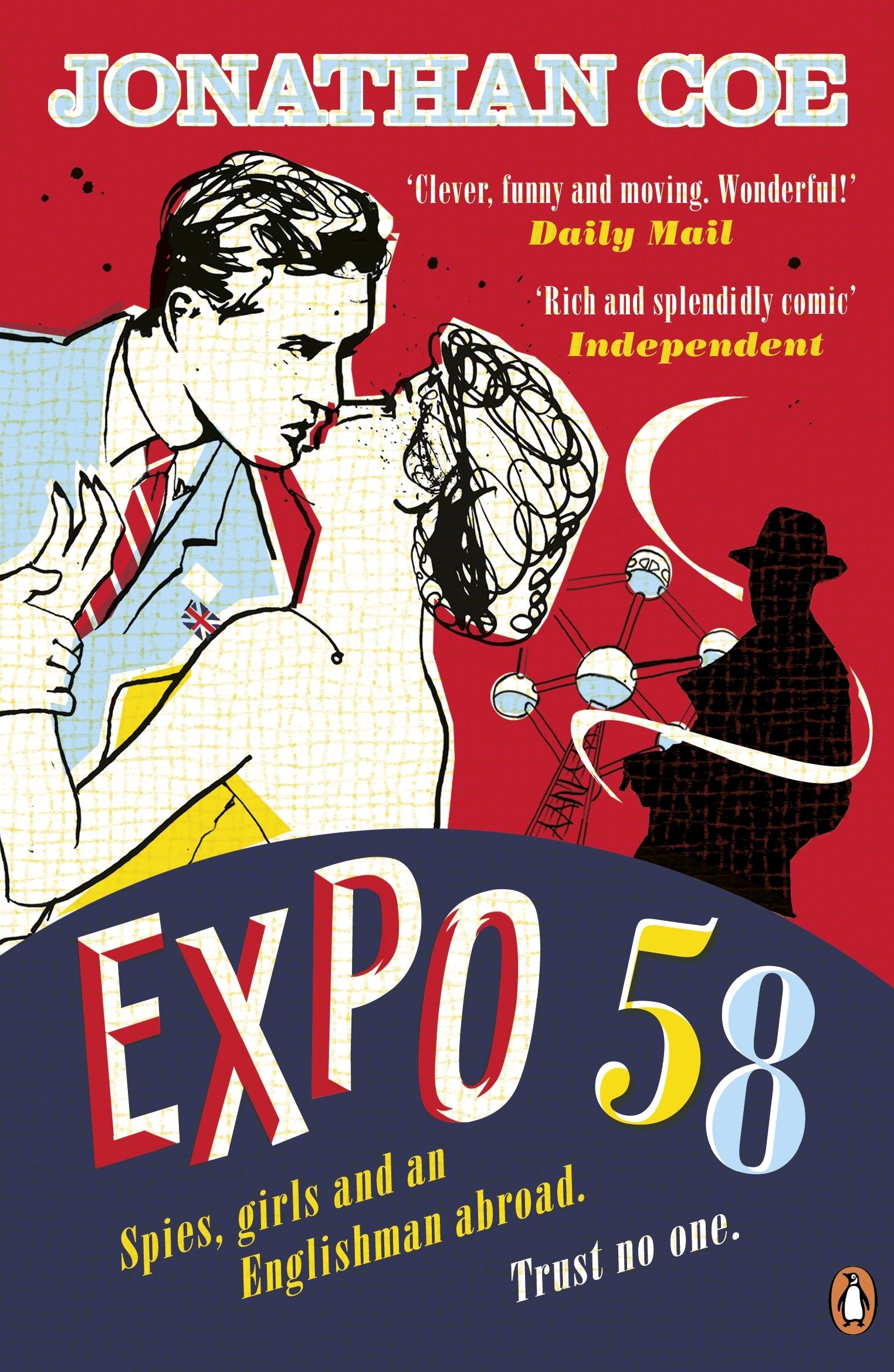
This novel can be read in a number of ways: as a traditional English ‘comic novel’ in the tradition of Henry Fielding, Michael Frayn and Kingsley Amis; as an hommage to British comedy films of the 1930s, 40s and 50s; as a parody of Cold War spy fiction; and as the latest chapter in an interlocking network of novels and short stories which I’ve been writing for the last two decades.
The story centres around a quiet, unassuming but handsome young civil servant, Thomas Foley, who is sent on a six-month assignment to Brussels, scene of the great World’s Fair of 1958. Expo 58 was an important historical event which still occupies a huge place in the collective memory of the Belgian people: the first such event after the Second World War, and a significant milestone in the reconciliation between the warring nations; the beginning of a closer co-operation between the European countries, shortly after the Treaty of Rome had been signed; and a landmark in the development of modern technology and architectural design. At the centre of it all was the Atomium which, since I first visited it in 2010, has become one of my favourite buildings in the world.
My imagination was sparked when a Belgian journalist told me how the American and Soviet pavilions had been placed almost side by side on the Expo site, a decision which he maintained was typical of the Belgian sense of humour. Of course, both countries were busy spying on each other at the time, and Expo 58 provided fertile ground for espionage. I set about devising a plot which would plunge the naive Thomas Foley into the thick of this treacherous situation, with the help of two British spooks who are clearly modelled on the characters of Charters and Caldicott from Hitchcock’s wonderful movie The Lady Vanishes – a personal favourite of mine.
Although Expo 58 was written as a standalone novel, its hero Thomas will be recognised by any readers who paid special attention to The Rain Before It Falls: he is the brother-in-law of Rosamond, the narrator of that story. The two books are therefore related, although they are completely different in tone. Thomas also appears (although he is not named) in my short stories ‘Ivy and Her Nonsense’ and ‘Pentatonic’, which can be read in the collection Loggerheads and Other Stories.


